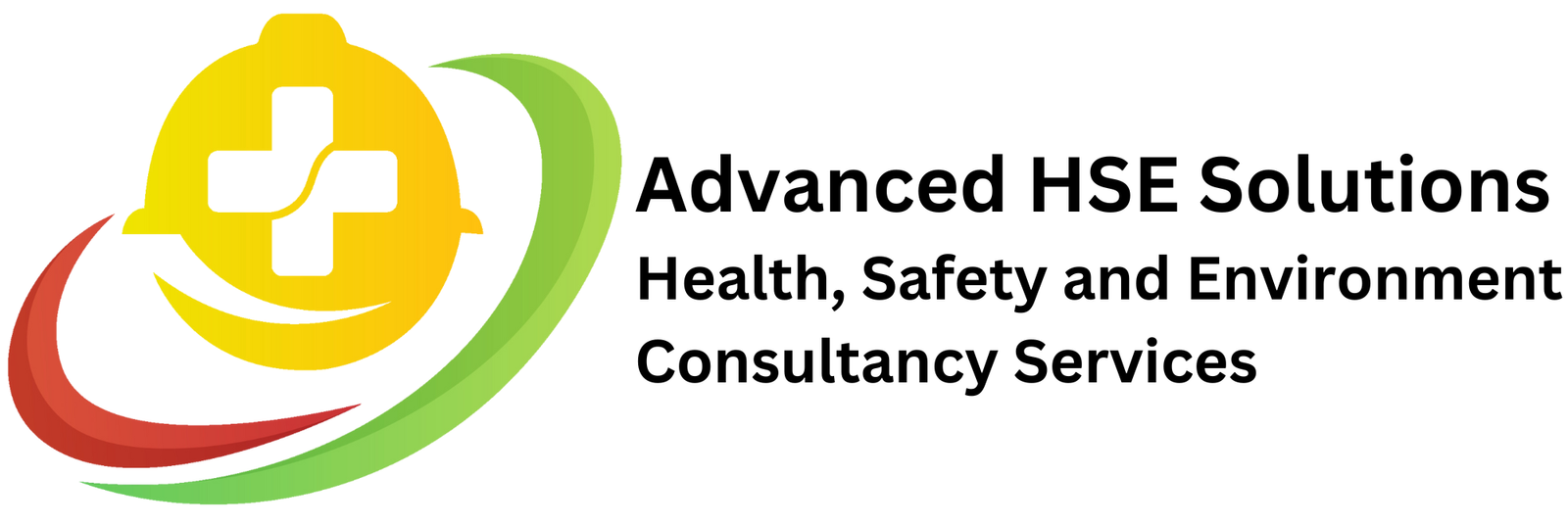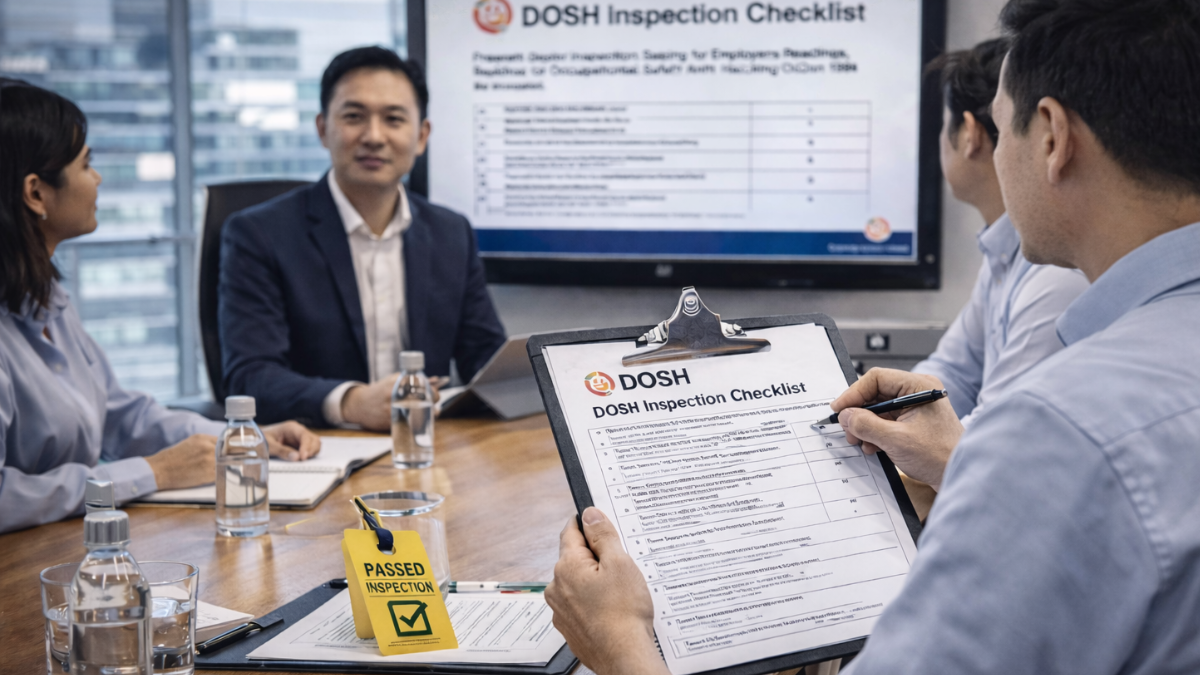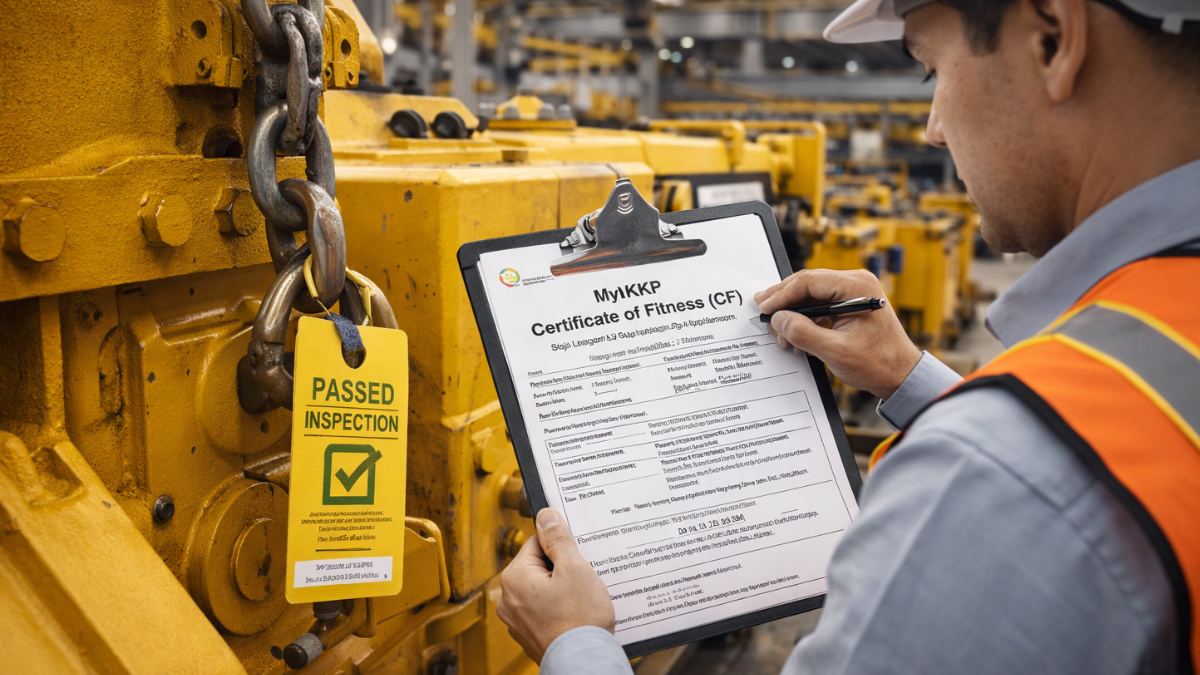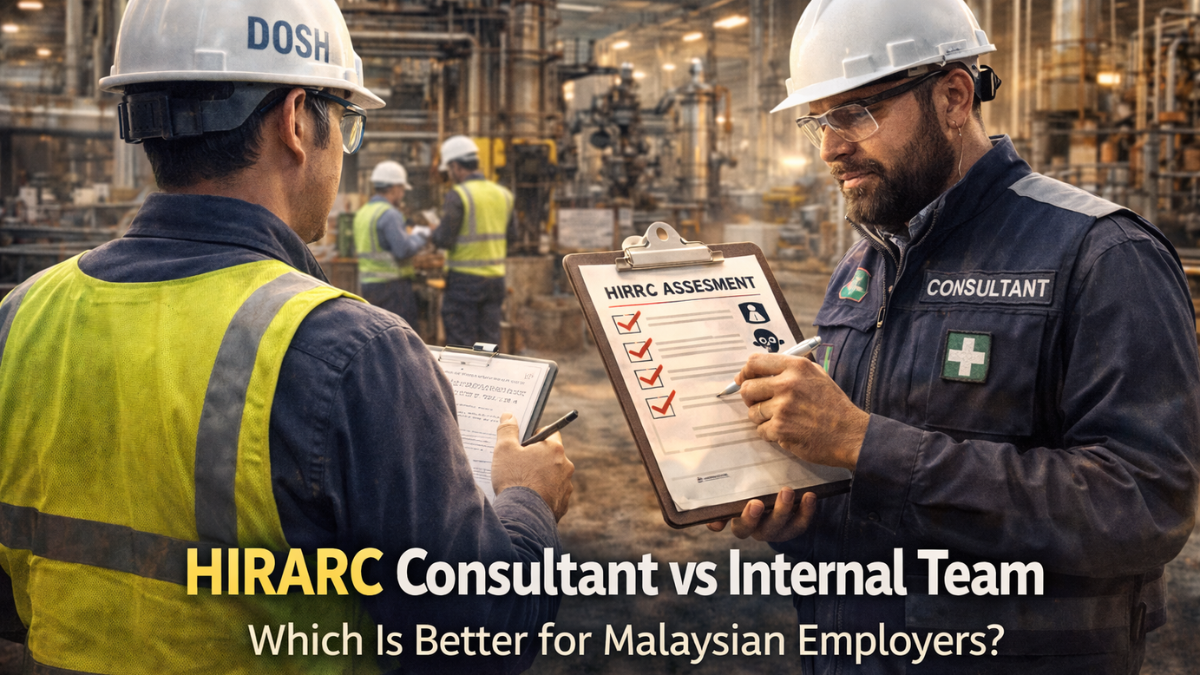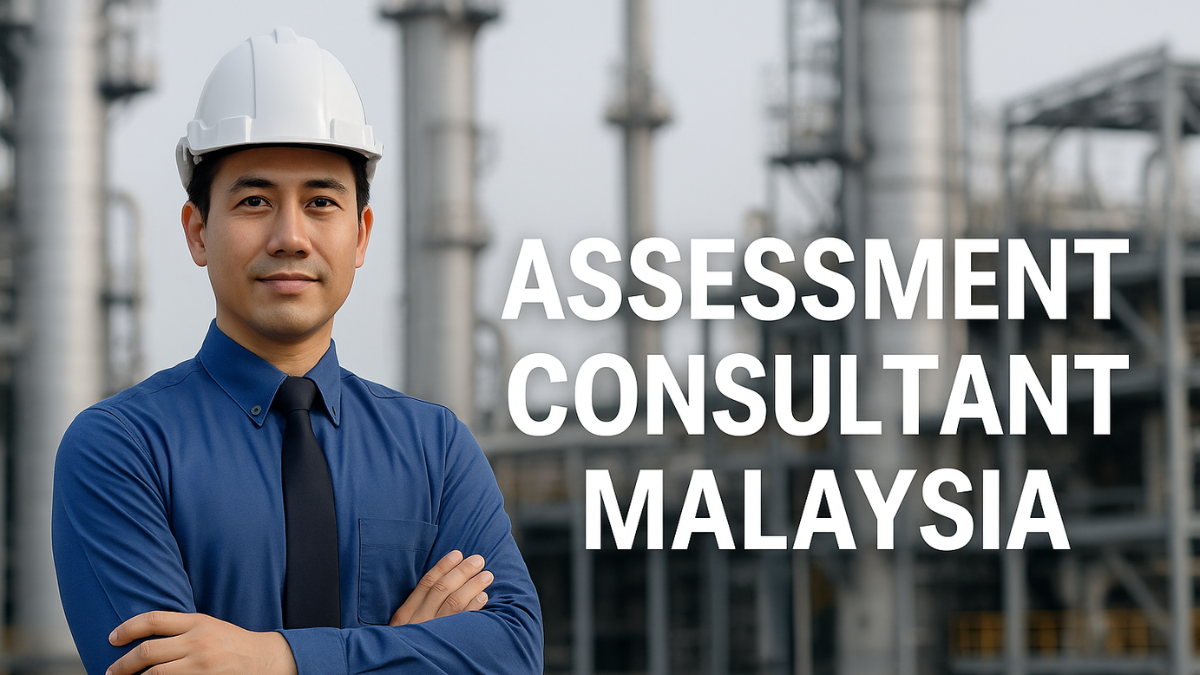Table of Contents
In today’s fast-paced and high-pressure work environment, psychosocial hazards are becoming an increasingly serious concern for Malaysian employers. These hazards — which include stress, long working hours, high job demands, poor communication, bullying, and job insecurity — are not just affecting the mental well-being of employees but are also having a significant impact on organizational performance.
Across Malaysia, industries ranging from manufacturing to healthcare and logistics are seeing a rise in cases of work-related stress, burnout, and absenteeism. According to recent data from the Department of Occupational Safety and Health (DOSH), mental health issues have emerged as a key contributor to workplace injuries and low productivity. Businesses that fail to address these issues may face reduced staff morale, high turnover rates, and even legal liabilities.
Recognizing this growing challenge, DOSH launched the Guidelines on Psychosocial Risk Assessment and Management at the Workplace (PRisMA) in 2024. These new guidelines provide a comprehensive framework for identifying, assessing, and managing psychosocial risks at work. They emphasize the employer’s duty under the Occupational Safety and Health Act (OSHA 2022) to provide a mentally safe and healthy working environment for all employees.
Implementing effective psychosocial risk management is not only essential for compliance with local regulations like OSHA 2022 and international standards such as ISO 45003, but also for improving employee engagement, safety, and business continuity. By taking proactive steps to mitigate psychosocial hazards, companies can create a healthier, more resilient workforce and gain a competitive edge in talent retention and employer branding.
In this article, we explore the most common psychosocial hazards in Malaysian workplaces, the legal framework governing them, and how organizations can respond effectively using PRisMA and other best practices.
Key Takeaways:
- Psychosocial hazards are real risks
Stress, unclear roles, and poor support can affect your team’s mental health, performance, and safety. - OSHA 2022 and PRisMA make action a legal duty
Malaysian law now requires employers to assess and manage psychosocial risks at work. - Managing these risks improves your business
It reduces turnover, lowers sick leave, and strengthens your position in audits, tenders, and certifications.
What Are Psychosocial Hazards?

Psychosocial hazards are risks that come from how your work is organized, managed, and experienced. These risks affect your mental and emotional well-being.
They don’t come from machines, chemicals, or noise. They come from people, systems, and expectations. That’s what makes them harder to see—but just as harmful.
There are two types of psychosocial hazards:
- Job content hazards – related to the tasks you perform
- Job context hazards – related to your workplace environment and relationships
How are they different from physical hazards?
- Physical hazards are visible—like slippery floors or loud noise.
- Psychosocial hazards are invisible—like pressure, fear, or isolation.
- You may not notice them right away, but they affect your health over time.
Common examples of psychosocial hazards:
- High workload – too many tasks, not enough time
- Lack of control – no say in how your work is done
- Poor support – supervisors or coworkers not helping
- Unclear roles – not knowing what’s expected of you
- Harassment or bullying – being targeted or excluded
Do you feel overwhelmed at work? Are you afraid to speak up? Do you leave the office mentally exhausted?
If yes, these could be signs of psychosocial hazards.
Let’s look at where these problems show up most in Malaysian workplaces.
Common Psychosocial Hazards in Malaysian Workplaces
Psychosocial hazards are not rare. You may see them every day in your workplace without realizing it. Here are some of the most common examples found in Malaysia:
Long hours and shift work
- Many factory and logistics workers face rotating shifts and extended hours.
- This disrupts sleep, increases fatigue, and affects family life.
- It also raises the risk of mistakes and workplace accidents.
Job insecurity
- Contract-based roles are common in retail, construction, and services.
- Uncertainty about job continuity creates stress and anxiety.
- You may feel less motivated if you fear sudden termination.
Work-life imbalance
- Urban workers often deal with long commutes and after-hours tasks.
- Working parents struggle to find time for children and self-care.
- This can lead to burnout, poor focus, and health problems.
Bullying and harassment
- Verbal abuse, exclusion, or unfair treatment can happen anywhere.
- Employees may feel isolated, unsafe, or unwilling to report.
- The Employment Act protects workers from such behaviour.
Do any of these sound familiar?
If so, your workplace may be facing psychosocial risks. These issues may not be visible, but they impact health, morale, and performance. Spotting them early can help you prevent long-term damage.
The next step is to know your responsibilities—and what the law says.
The Legal Framework in Malaysia
If you run a business in Malaysia, you are now legally required to manage psychosocial hazards. New laws and guidelines make this clear. Here’s what you need to know.
OSHA 2022 (Occupational Safety and Health Act)
- This law came into effect to replace OSHA 1994.
- It applies to almost every workplace in Malaysia—public and private.
- You must take steps to protect workers from both physical and mental risks.
- Psychosocial hazards now fall under your legal duty of care.
ISO 45003: Psychological Health and Safety at Work
- This global standard focuses on mental health at work.
- It helps you identify stress factors, manage them, and support your employees.
- It works well with ISO 45001 and shows you’re serious about workplace safety.
DOSH PRisMA Guidelines 2024
- DOSH released these guidelines to help you manage psychosocial risks.
- They include tools like LEO26 for screening your workforce.
- You get a clear process: assess, act, and monitor.
Your responsibilities as an employer or HR leader
- Spot psychosocial risks early—before they grow.
- Use proper tools to assess those risks.
- Act to reduce or remove them.
- Train your team, especially managers, to respond with care.
- Review policies and update them to reflect legal changes.
Is your workplace ready for these changes?
Meeting your legal duties isn’t optional. It protects your staff—and your business reputation.
Identifying and Assessing Psychosocial Risks
You can’t fix what you can’t see. Start by identifying what your employees are experiencing. Then measure the risks clearly.
Use the right tools
- PRisMA 2024 includes the LEO26 assessment.
- This tool helps you screen for common stressors at work.
- It covers areas like workload, role clarity, support, and job security.
- You can run it as a simple, anonymous questionnaire.
Watch for early signs
- High turnover or resignation rates
- Increased sick leave or absenteeism
- Low engagement during meetings or reviews
- Complaints about unfair treatment or pressure
- Conflicts between staff and managers
Try these low-cost methods
- Run an anonymous employee survey every 6–12 months
- Track absenteeism trends across departments
- Hold one-on-one check-ins with staff at different levels
- Set up a suggestion box (digital or physical)
Do your team members feel safe, respected, and supported?
If you’re not sure, it’s time to ask. Listening is the first step in managing risk—and building trust.
How to Manage and Reduce Psychosocial Hazards
Once you identify the risks, take action. Start with practical steps. Involve your team. Focus on what you can change now.
A. Organizational Interventions
- Redesign job roles to reduce repetitive tasks or conflicting duties.
- Offer flexible work hours or remote options where possible.
- Balance workload across teams to avoid overloading key staff.
- Update company policies to promote fairness and transparency.
- Clarify job expectations so employees know what’s required of them.
B. Support Systems
- Start an Employee Assistance Program (EAP) with access to mental health professionals.
- Offer counselling sessions for staff dealing with work-related stress.
- Create peer support groups for open, informal discussions.
- Provide a safe space where employees can raise concerns privately.
C. Training and Awareness
- Train managers to recognize signs of stress, burnout, or isolation.
- Encourage regular check-ins between leaders and staff.
- Run awareness sessions about mental health and workplace respect.
- Promote open communication without fear of judgement or punishment.
What changes can you apply this month? Start small and track results. Even one adjustment can improve how your team feels at work.

Benefits of Proactive Psychosocial Risk Management
Managing psychosocial risks isn’t just about avoiding problems. It helps your workplace run better. Your team performs well when they feel safe and respected.
Better morale and lower turnover
- When staff feel supported, they stay longer.
- Trust builds when roles are clear and pressure is managed.
- You spend less time replacing people and more time growing your business.
Fewer sick days and injuries
- Stress and burnout lead to more leave and lower focus.
- Fatigued workers make more mistakes, including safety errors.
- Reducing these risks means fewer disruptions and more consistency.
Stronger legal and audit readiness
- DOSH may check how you manage mental health at work.
- Tenders and certifications (like ISO 45001 and 45003) ask about staff well-being.
- Being prepared shows you take responsibility seriously.
What would your workplace look like if fewer people felt drained, anxious, or isolated?
Psychosocial risk management makes that possible. It’s not only the right thing to do—it makes business sense.
Why Choose Advanced HSE Solutions?
If you’re serious about managing psychosocial hazards, you need a partner who understands the process from start to finish. That’s where we come in.
We specialise in PRisMA assessments
- We help you apply the PRisMA 2024 guidelines correctly.
- You get clear reporting, scoring, and practical next steps.
- We guide you through screening tools like LEO26.
We train your team in real-world scenarios
- Our trainers are experienced in workplace mental health issues.
- We focus on practical skills, not just theory.
- Sessions are designed to fit your work environment and schedule.
We provide tools you can use right away
- We offer templates for surveys, checklists, and risk registers.
- You get advice tailored to your workplace size and industry.
- Our tools help you track progress and make data-based decisions.
We offer HRDC-claimable training
- We are a registered HRDC training provider.
- Your training costs may be claimable under HRD Corp.
- This helps you train more staff without heavy expense.
Are you ready to create a safer and more supportive workplace?
Contact us to book a consultation or request a training proposal today.
FAQs on Psychosocial Hazards
Q: What are psychosocial hazards?
A: Psychosocial hazards are workplace factors that affect how people feel and function. This includes long hours, high pressure, bullying, poor support, and job insecurity.
Q: Are Malaysian employers required to manage psychosocial risks?
A: Yes. Under OSHA 2022, all employers must ensure both physical and mental safety at work. DOSH’s PRisMA 2024 guidelines support this requirement.
Q: What’s the first step to start managing psychosocial risks?
A: Start by assessing your workplace using tools like LEO26. You can also run anonymous surveys or consult experts like Advanced HSE Solutions to guide you through the process.
Not sure where to begin?
Our team can guide you step-by-step. Contact Advance HSE Solution today to schedule a consultation or inspection service.
